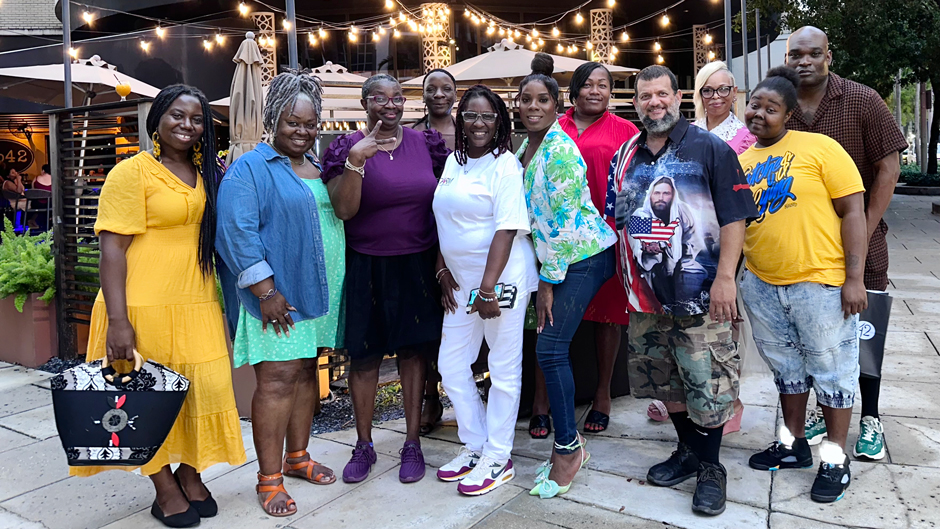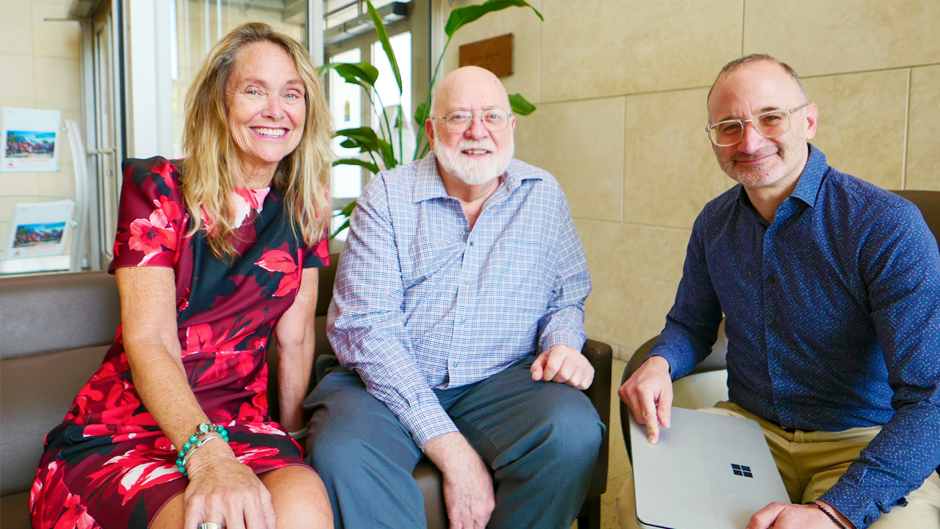When Sherkila Shaw learned that she was living with HIV two decades ago, the diagnosis changed her entire life. Shaw, who had four young children, worried how much longer she would be alive.
“You go through 10 emotions within five minutes,” she said.
As time went on, Shaw quickly needed more than just medical care. She was grappling with depression, using drugs, and five years later, Shaw developed AIDS. A doctor predicted she would live just 24 hours. But after a month in the hospital, a strong course of antiretroviral drugs, and therapy, Shaw turned a corner.
“It wasn’t until I almost had a mental breakdown that I begged my case manager for help,” she said. “She got me the help I needed, and I am proud to say that I still go to group therapy once a week and have a great psychiatrist.”
Shaw is one of many people living with HIV who struggle with mental health challenges, before or after their diagnosis. Research indicates that people with mental health challenges are more likely to acquire HIV, and that these struggles are widespread among people living with HIV and can affect many components of self-care. In Miami—one of the hotspots in the nation for HIV transmission and prevalence—researchers have noticed this correlation since the 1980s. Over time, scientists working in the field learned that mental health struggles can often deter a person’s ability to learn about and utilize new HIV advancements, such as pre-exposure prophylaxis medication (PrEP), or antiretroviral medications.
Because of the many systemic hurdles that people who are likely to be diagnosed with HIV often face—including poverty, racism, homophobia, and violence—in 2019, two University of Miami psychologists and a public health scientist with HIV-related expertise brought together researchers across the University doing innovative work in HIV and mental health to form the Center for HIV and Research in Mental Health, also known as CHARM, as a developmental center to foster more research about the mental health impacts of the virus and help curb further HIV transmission in South Florida.
“Our whole goal with ending the HIV/AIDS epidemic is to get as close to zero new transmissions as possible. But there’s still a lot of stigma associated with HIV and structural barriers, especially in some of the communities we work with. And that interferes with this goal,” said Steven Safren, the director of CHARM and a professor of psychology in the College of Arts and Sciences. “At CHARM, we are working on ways to address these issues and to meet people where they are.”
CHARM-affiliated scientists have received millions of dollars in external research funding during the past five years, potentially impacting thousands of South Florida people and their families affected by HIV . They also have partnered with community organizations to reach those with the greatest need. Based on its success, this spring CHARM became a full AIDS Research Center (ARC) funded by the National Institute for Mental Health—a division of the National Institutes of Health. The new title means CHARM will garner $7.5 million in research infrastructure funding over the next five years. It is also the sixth center of its kind across the country and the only ARC focused on mental health in the Southeastern United States, where rates of HIV remain highest, Safren pointed out.
“We’ve been helping people shape exciting ideas into projects and helping faculty to find pilot funding for these ideas, which is how we’ve been successful,” said Safren, whose research deals with depression and other mental health conditions that often hinder HIV treatment and prevention. “This recognizes that we have a team of leading HIV researchers here at the University of Miami who are doing critical work related to mental health.”
According to the U.S. Centers for Disease Control and Prevention, today HIV/AIDS primarily impacts people within the Black and Latino communities, and it particularly affects gay and bisexual men (otherwise known as sexual minorities), transgender women, and Black cisgender women. In Miami, disparities related to HIV also impact disenfranchised populations, such as individuals with prior justice system involvement and many of the region’s immigrant communities, Safren noted.
“HIV is still a very big concern for our region in terms of new cases and mental health and health disparities,” said Deborah Jones Weiss, a professor of psychiatry and behavioral science at the Miller School of Medicine and a co-director of CHARM. “There are a lot of people suffering from mental health and substance use challenges, and there are profound disparities between which persons living with HIV who do well and those who do not do well.”
To unravel these trends and prevent more local transmission, CHARM researchers have made a point to forge connections with these different communities in Miami. A key component is CHARM’s community advisory board (CAB) that meets monthly and includes local advocates, people living with HIV and mental health struggles, and leaders from related organizations. The CAB helps inform funding priorities for pilot research awards, providing critical insights to researchers about carrying out effective community engaged work and delivering innovative programming.

“One of our biggest accomplishments is the level of community engagement and ways in which our center is making a concerted effort to listen to and collaborate with people living with HIV who have the lived expertise on HIV and mental health,” said Sannisha Dale, an associate professor of psychology who leads CHARM’s mental health disparities and community engagement core.
For example, as part of her Five Point Initiative project, Dale’s research team—in partnership with community consultants; health organizations; and businesses like corner stores, laundromats, beauty shops, barber shops, and car repair shops in Black communities across Miami-Dade County—talks with community members about HIV. Since 2019, the team offers testing and provides information and resources on PrEP to prevent HIV transmission. Shaw has been working as a community consultant with Dale.
Meanwhile, Mariano Kanamori, an associate professor of public health sciences, has a research team that visits pharmacies and recreation facilities to share information on PrEP with people in Miami’s Latino community who are at risk for HIV. In addition, Dr. Candice Sternberg, an assistant professor of medicine in the division of infectious diseases, has built bonds with the Haitian community in Miami, which also experiences a high prevalence of HIV. Through her CHARM funded “Bon Sante” project and a recent supplement, Sternberg has been gathering key information about how to engage the Haitian community in South Florida about HIV prevention. Currently, her research team hopes to disseminate information about HIV testing, treatment, and prevention through local Haitian churches.
With the new funding, CHARM will now be able to expand and have five core areas of its research support, according to Safren. This includes a new team that will focus on sharing more research-based solutions with the community. Also, being a full ARC will allow CHARM to work with and offer pilot funding to other nearby institutions like Florida International University, Nova Southeastern University, and Florida State University to expand their HIV/AIDS research, Safren added.
School of Nursing and Health Studies assistant professor Audrey Harkness, who is also a psychologist, has developed two research projects with the help of CHARM to educate Latino men who consider themselves sexual minorities on how to access HIV treatments and PrEP. Statistics indicate that this is one of the largest populations at risk for HIV in South Florida.
“CHARM has a good way of leveraging the strength of different communities in Miami, so this new investment in CHARM is so important,” Harkness said. “My hope is that it will continue to do the excellent job we have been doing in Miami to help end the HIV epidemic.”
For Shaw, improving her mental health has been an essential part of also improving her own physical health. Today, her levels of HIV are undetectable and she credits that to taking her medications daily, as well as her weekly group therapy. Engaging in HIV advocacy—through activities like “CHARMING Conversations,” a webinar-style discussion series launched in 2021 by the CAB to discuss HIV and mental health-related issues—also helps.
“I never really addressed some of my trauma and by opening up in the first and second CHARMING Conversation it helped me to heal,” she said.
This research was supported by the National Institute of Mental Health of the National Institutes of Health under award number P30MH133399. The content is solely the responsibility of the authors and does not necessarily represent the official views of the National Institutes of Health.

